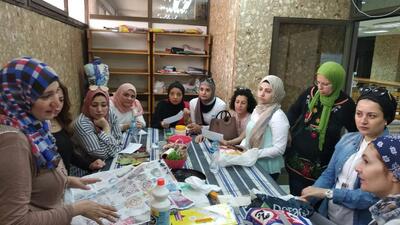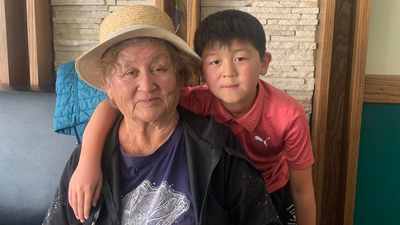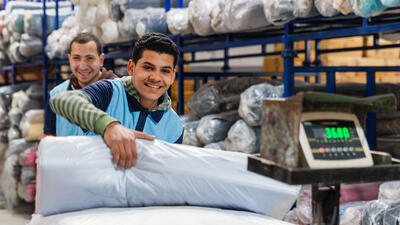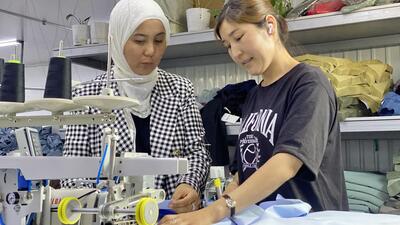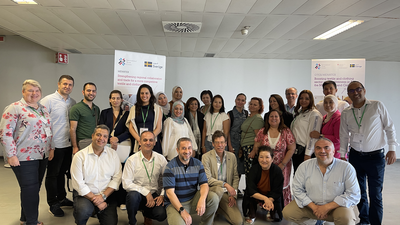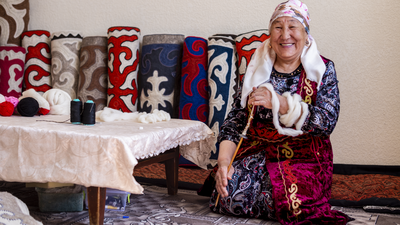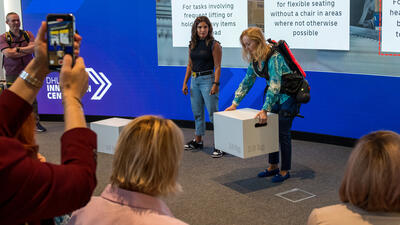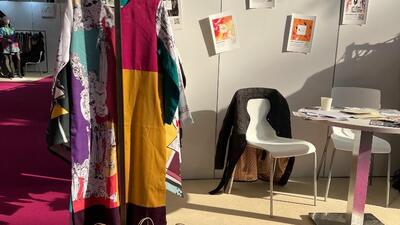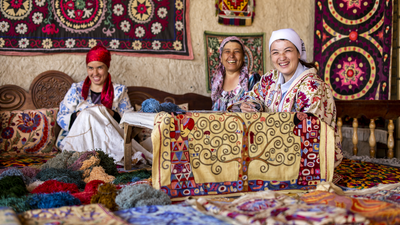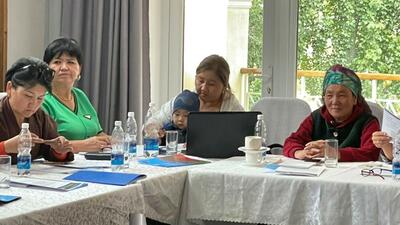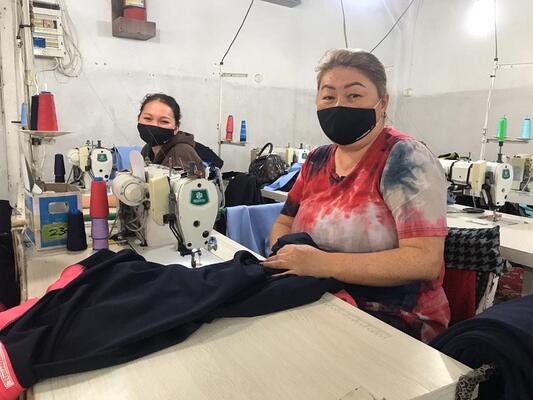
Remaining proactive during slump
A textile and clothing company in Kyrgyzstan gives back.
“We were able to quickly adapt to the new reality and reshape our manufacturing process respecting the health authorities’ recommendation. It took us a day to modify our production to allow us to keep 100% of our workforce without pay cuts. It was more than just making profit”, highlights Rustam Hizirov, Executive Director of Larrus Moda.
The preparation came in handy as Kyrgyzstan faced a critical shortage of personal protective equipment caused by the rapid spread of the coronavirus and the imposed quarantine.
The national textile and clothing sector had no producers of personal protective equipment and soon stocks were out. Many companies were forced to reduce their staff to minimum capacity or shut down entirely.
“The Covid-19 pandemic had an adverse effect on every industry in the country. The garment sector, which exports almost 100% of its production, particularly took a hard hit,” says Hizirov.
Before the pandemic, the company, specialised in manufacturing women’s clothing. However, business manager of the company, Kahramon Kadyrov’s experience of serving as a surgeon in the past had compelled them to shift their production towards face masks.
“As a former surgeon, I understand the importance of good personal protection equipment. Health professionals depend on the textile and clothing sector and rigorous standardisation to protect themselves at work,” explains Kadyrov.
With the outbreak, the company found itself in a situation that called for fulfilling its social responsibility. Larrus Moda, with support from the International Trade Centre through its GTEX programme re-oriented their production to support the country to overcome the pandemic and the need for medical textiles.
Soon after the mass quarantine imposed in March, Larrus Moda began producing medical textiles based on their previous research, tests and with the authorisation of Government of Kyrgyzstan.
Feedback from epidemiologists, experts from the Ministry of Health and the Centre for Disease Control to helped them meet the required medical standards for their products.
“We distributed the first batches for free in hospitals, ambulance units, volunteers, as well as critically overlooked production staff and security guards serving at Infectious Diseases Hospital,” says Kadyrov.
After the first donations, the company started receiving orders for personal protective equipment to be sent to remote regions. As part of their social responsibility plan and with the support from ‘Legprom’ Association, the company managed to provide financial and food assistance to employees besides securing access to special transport permits to commute during the quarantine and curfews.
Larrus Moda has resumed production of the new medical textile line made out of premium fabric consistent with appropriate standards and regulations. The company is preparing to export its products for buyers from the Eurasian Economic Union who have already expressed their interest.
GTEX
The International Trade Centre’s Global Textiles and Clothing Programme (GTEX) is funded by the government of Switzerland. The GTEX programme provides support to Textile and Clothing (T&C) companies in Central Asia (Kyrgyzstan and Tajikistan) and the Middle East and North Africa (Egypt, Morocco and Tunisia). The programme’s goal is to promote T&C exports and to stimulate employment and income generation along the value chain.




